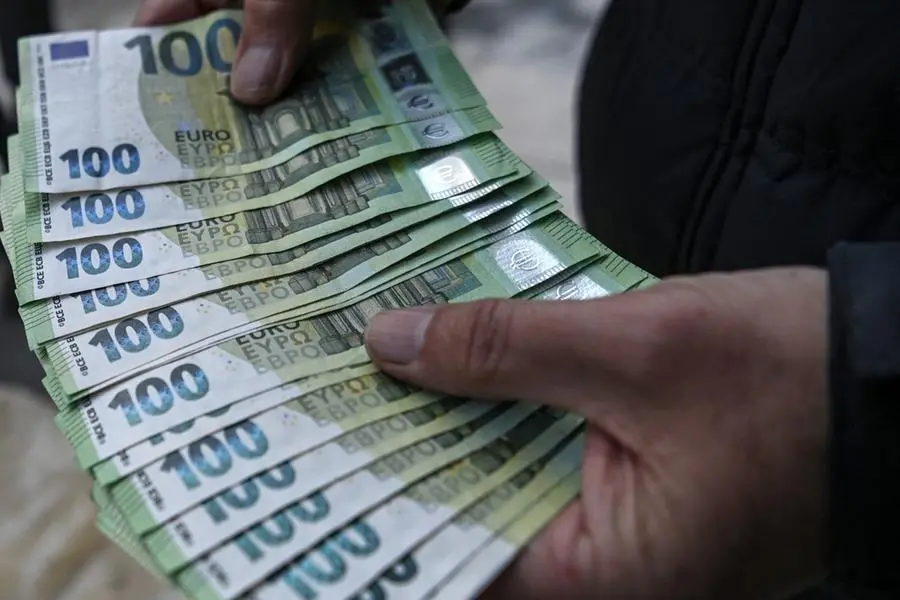PHOTO
Eurozone inflation fell to its lowest level in more than three years this month thanks to falling energy costs, official data showed on Friday, raising expectations of a European Central Bank interest-rate cut.
Consumer price rises slowed to 2.2 percent in August compared to the same month last year after reaching 2.6 percent in July, closing in on the European Central Bank's two-percent target.
The August rate was the lowest since July 2021 and in line with expectations by analysts for FactSet and Bloomberg.
But core inflation, which strips out volatile energy, food, alcohol and tobacco prices and is a key indicator for the bank, cooled slightly to 2.8 percent in August from 2.9 percent in July, Eurostat said.
Friday's data will provide some relief after inflation unexpectedly edged up in July.
The ECB launched an aggressive rate-hiking campaign in July 2022 to tame red-hot inflation, which peaked at 10.6 percent in October that year as Russia's invasion of Ukraine sent food and energy prices soaring.
The ECB cut rates for the first time in June this year.
The Frankfurt-based institution has since kept rates unchanged but the market hopes another cut will come after a meeting on September 12.
The data "makes a rate cut at the European Central Bank's upcoming September policy meeting more likely", said Sam Miley of London-based Centre for Economics and Business Research.
"However, the higher rate of core inflation and continually tight labour market will present risk factors to implementing looser monetary policy," Miley said.
- Olympic Games effect -
An ECB board member had warned on Friday before the data was published that there should be a cautious approach to loosening monetary policy.
"The pace of policy easing cannot be mechanical. It needs to rest on data and analysis," Isabel Schnabel said during a speech in the Estonian capital Tallinn.
The better performance in August was mainly thanks to a 3.0 percent fall in energy prices in August, including prices at the pump.
The drop came after energy costs had risen by 1.2 percent in July.
Food and drinks prices rose by 2.4 percent this month in the eurozone, at a slightly faster rate than the 2.3 percent registered in July.
Services inflation accelerated to 4.2 percent in August, up slightly from 4.0 percent recorded in July, which could have been in part caused by the Olympic Games in Paris.
"Services inflation might not be quite as bad as it first appears," said Jack Allen-Reynolds of Capital Economics.
He said the rise could be partly explained by the Games, which led to sharp rises in the prices of accommodation and transport.
Allen-Reynolds added he expected a rate-cut in September and another in December "if services inflation declines over the rest of the year as we expect".
- Inflation slowing in France, Germany -
There were also welcome slowdowns in the inflation rate in Europe's two biggest economies.
Germany registered an annual rate of inflation of 2.0 percent in August, down from 2.6 percent in July, the EU's statistics agency said.
Meanwhile, consumer prices in France reached 2.2 percent this month, down from 2.7 percent in July.
Lithuania recorded the lowest inflation rate in August across the eurozone, at 0.7 percent, Eurostat data showed.
Other Eurostat data published on Friday showed the unemployment rate in the single currency area fell slightly to 6.4 percent in July from 6.5 percent in June.





















